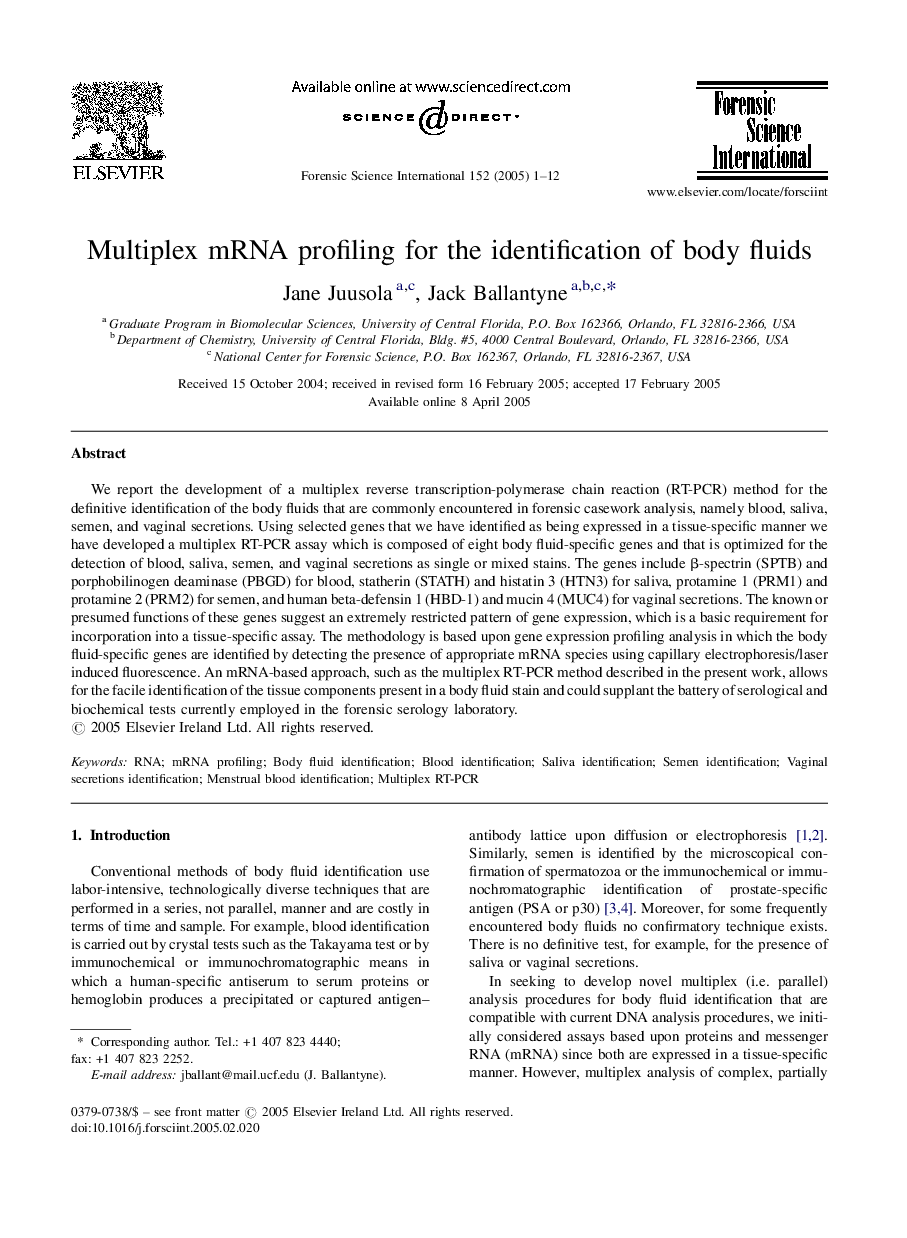| Article ID | Journal | Published Year | Pages | File Type |
|---|---|---|---|---|
| 10252609 | Forensic Science International | 2005 | 12 Pages |
Abstract
We report the development of a multiplex reverse transcription-polymerase chain reaction (RT-PCR) method for the definitive identification of the body fluids that are commonly encountered in forensic casework analysis, namely blood, saliva, semen, and vaginal secretions. Using selected genes that we have identified as being expressed in a tissue-specific manner we have developed a multiplex RT-PCR assay which is composed of eight body fluid-specific genes and that is optimized for the detection of blood, saliva, semen, and vaginal secretions as single or mixed stains. The genes include β-spectrin (SPTB) and porphobilinogen deaminase (PBGD) for blood, statherin (STATH) and histatin 3 (HTN3) for saliva, protamine 1 (PRM1) and protamine 2 (PRM2) for semen, and human beta-defensin 1 (HBD-1) and mucin 4 (MUC4) for vaginal secretions. The known or presumed functions of these genes suggest an extremely restricted pattern of gene expression, which is a basic requirement for incorporation into a tissue-specific assay. The methodology is based upon gene expression profiling analysis in which the body fluid-specific genes are identified by detecting the presence of appropriate mRNA species using capillary electrophoresis/laser induced fluorescence. An mRNA-based approach, such as the multiplex RT-PCR method described in the present work, allows for the facile identification of the tissue components present in a body fluid stain and could supplant the battery of serological and biochemical tests currently employed in the forensic serology laboratory.
Related Topics
Physical Sciences and Engineering
Chemistry
Analytical Chemistry
Authors
Jane Juusola, Jack Ballantyne,
